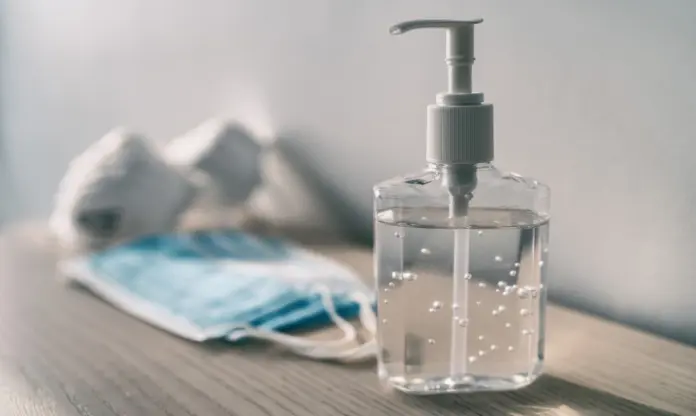There is an outpouring of solidarity by society and businesses in response to the public health crisis resulting from COVID-19.

Don’t miss our content
SubscribeThere is an outpouring of solidarity by society and businesses in response to the public health crisis resulting from COVID-19.
Either spontaneously or in response to the requests from public authorities to address COVID-19, many companies and individuals are donating health care materials, protective equipment and hygiene supplies.
Public authorities are requesting the following health care materials: masks, gloves, personal protective equipment and disinfectants.
As for consumers, there has been a surge in demand for masks, gloves and hydrogels. Demand will further increase after the lockdown ends.
Hydrogel production must meet certain requirements, both regulatory and regarding excise duties on manufactured goods. Therefore, all companies that decide to produce hydrogels in response to the public authorities’ request must ensure compliance with the applicable legislation in order not to be held liable.
There are specific procedural requirements and red tape required by excise duty provisions. Cosmetics companies have been the quickest to respond to the call for help, since they were already registered users for the type of alcohol used to produce these solutions (unfit for human consumption).
Users of completely or partially denatured alcohol—such as cosmetics manufacturers—already have an Activity and Establishment Code number (Código de Actividad y Establecimiento, CAE), either under the AV (users of partially denatured alcohol with general denaturing agents) or AW category (users of partially denatured alcohol with special denaturing formula) and they have been granted an authorization. This authorization allows them to use alcohol for their manufacturing processes and exempts them from excise duty on alcohol because it is not for human consumption.
However, companies cannot immediately adapt production or switch products to manufacture hydroalcoholic gels, since they need to take into account some preventive requirements.
First, hydrogel production must comply with all the legal requirements governing the manufacturing and distribution of these products. Accordingly, hydroalcoholic gels can be subject to two different regulatory frameworks. The applicable framework will depend on whether these hydrogels qualify as cosmetic or biocidal products. This classification relies on the product’s purpose and properties (which must be duly certified). If a given product has antiseptic, bacteriostatic, bactericidal, germicidal, virucidal or microbicidal properties, it will qualify as a biocidal product. However, products with a cleaning or hygienic purpose will be classified as cosmetics.
Biocidal products must comply with Royal Decree 1054/2002, of October 11, on the evaluation procedure for the registration, authorization and the making available on the market of biocidal products and Regulation (EU) No. 528/2012, of the European Parliament and of the Council, of May 22, 2012, concerning the making available on the market and use of biocidal products. The latter provision requires a prior authorization to make the product available on the market and its registration in the relevant Register for Biocidal Products.
Cosmetics are subject to Royal Decree 85/2018, of February 23, on cosmetic products (and to the applicable provisions of Royal Decree 1599/1997, of October 17) and to Regulation (EC) No. 1223/2009 of the European Parliament and of the Council, of November 30, 2009, on cosmetic products. Among other aspects, these provisions require: (i) to carry out a safety assessment of the product, and (ii) to notify the European Commission before placing the cosmetic product on the market.
Cosmetics companies are able to comply with the above requirements quicker, and they are also in a better position to urgently produce these gels, since they are ready to comply with cosmetic product and excise duty legislation. Therefore, most of the manufactured solutions to address this public health crisis come from the cosmetic industry.
Given the current needs, the Ministry of Health has adopted a set of measures to ensure availability of hydroalcoholic gels, including:
- Granting exceptional temporary authorizations to cosmetics and medicinal product manufacturers to produce cosmetic hydroalcoholic solutions, even if these manufacturers have not fully complied with the regulatory requirements. The produced gels will be distributed to the usual points of sale, to central purchasing bodies of regional authorities, health care centers, nursing homes and enforcement authorities.
- Authorizing and regulating the use of bioethanol to produce hydroalcoholic gels qualifying as biocidal products. This measure results from the need to seek alternative sources of ethanol to meet a high demand for this product.
- Establishing the procedure for the Inter-Ministerial Pricing Commission for Medicinal Products to set the sales price of these gels (and of other protective products such as masks) to prevent abuses.
Having fulfilled the prior formal obligations, companies must comply with the following excise duty requirements provided in Act 38/1992, of December 28, on Excise Duties and in Royal Decree 1165/1995, of July 7, approving the Excise Duty Regulations, including users’ accounting obligations.
Within the remaining industries, upon fulfillment of the formal and regulatory requirements referred to above, the change in production (change of activity) will require the competent authority’s prior authorization. The additional activity code number (business code) will depend on the substance to be used as raw material to partially denature the alcohol in the hydrogel manufacturing process.
Given the current emergency, the Spanish Tax Agency is prioritizing these procedures to allow interested companies to start producing hydrogels.
Keep in mind the formal and control requirements provided in the applicable excise duty legislation to avoid future contingencies and to ensure the tax-exempt use of alcohol.
Please contact us if you have any questions regarding these requirements or the exemption.
Don’t miss our content
Subscribe